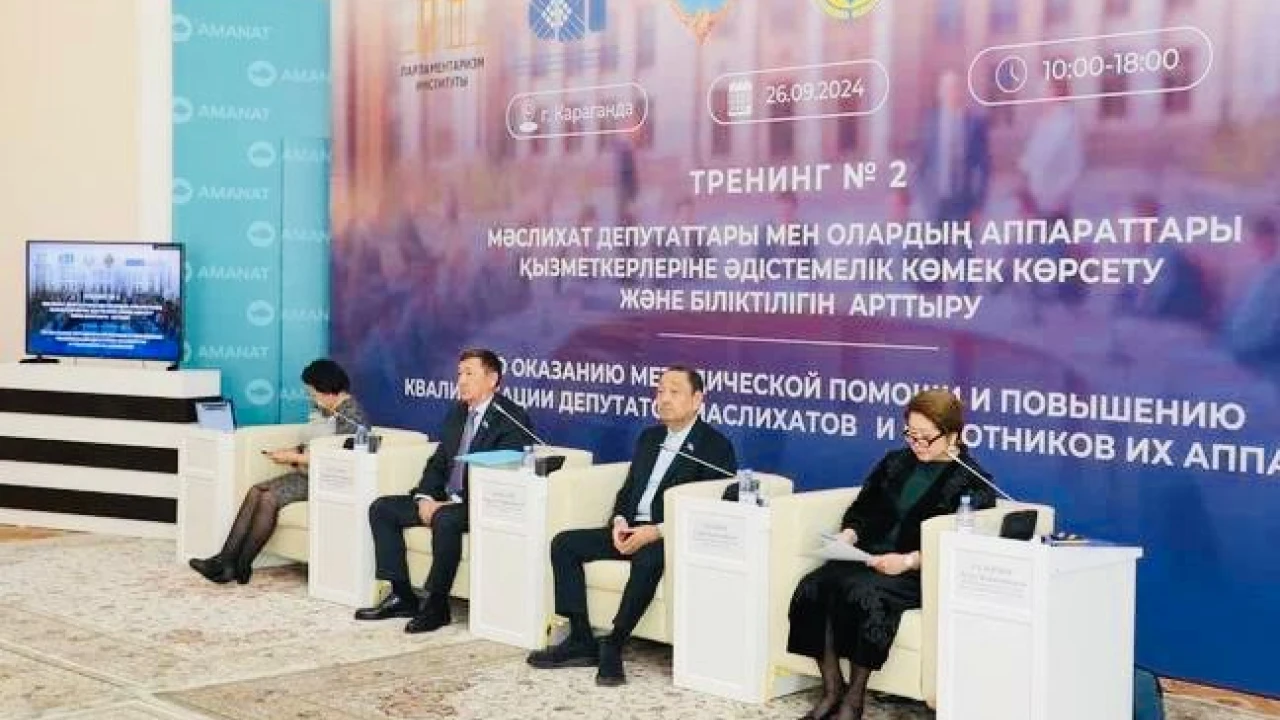
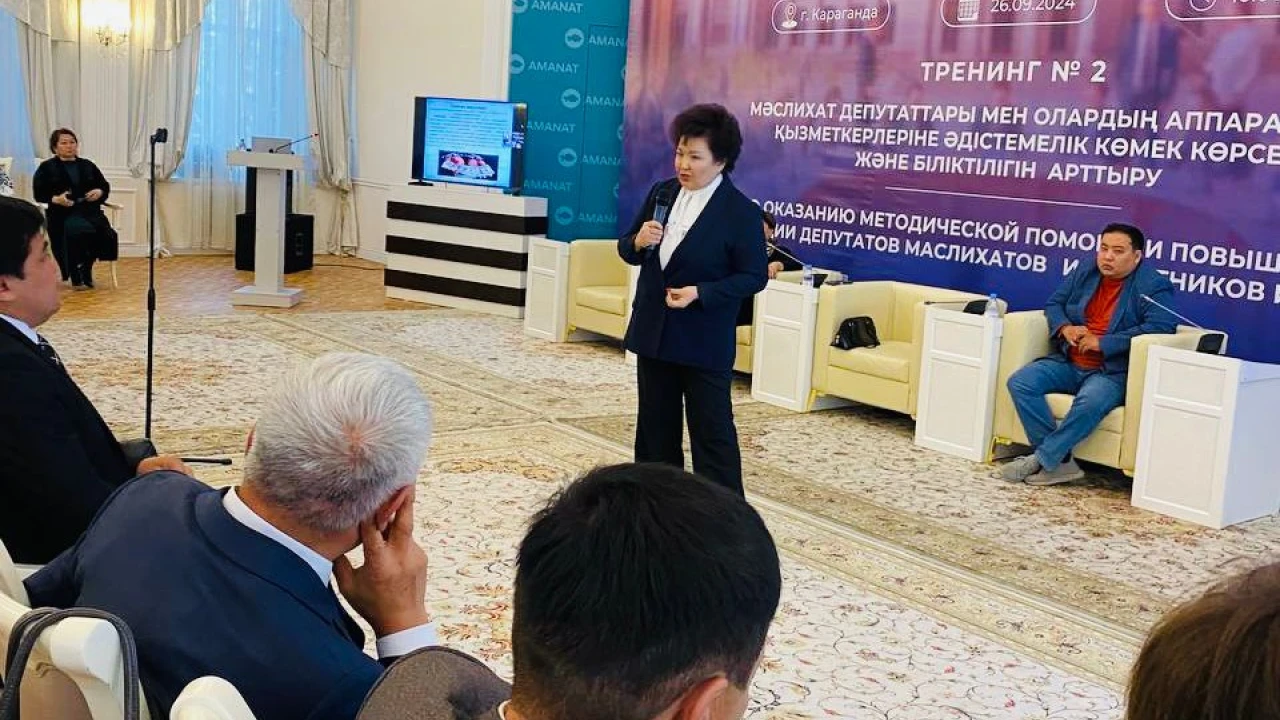
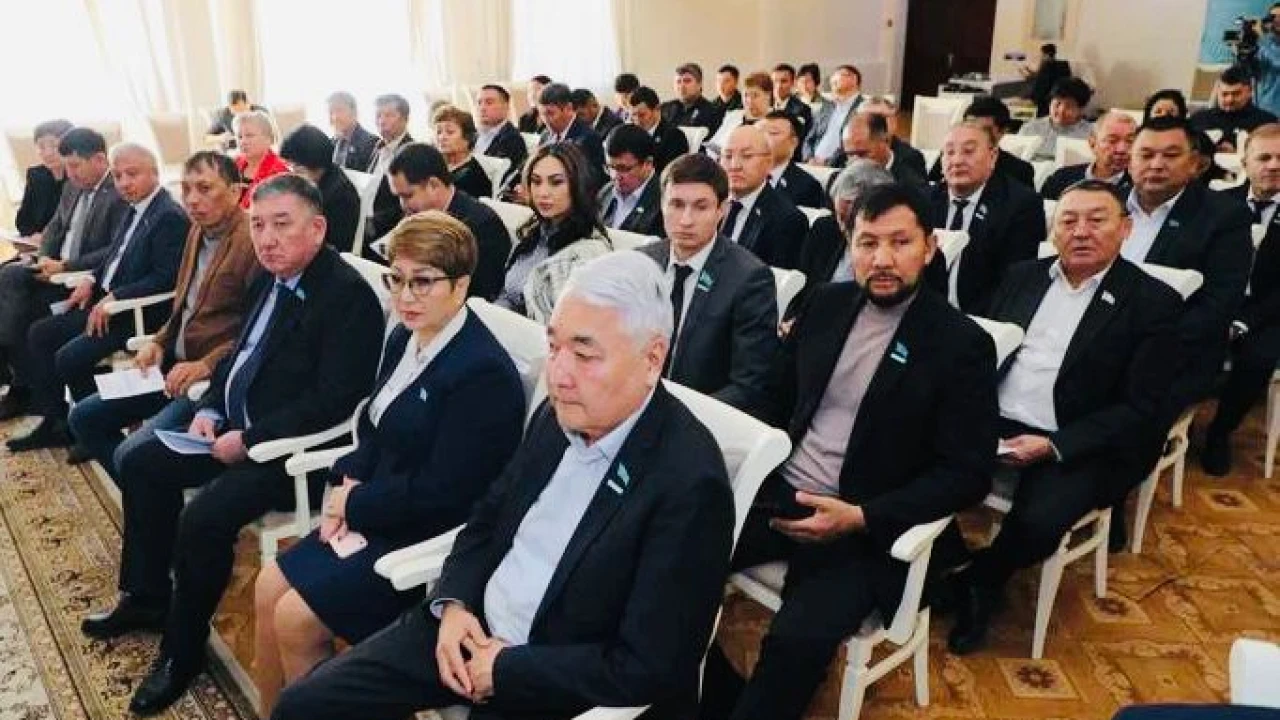
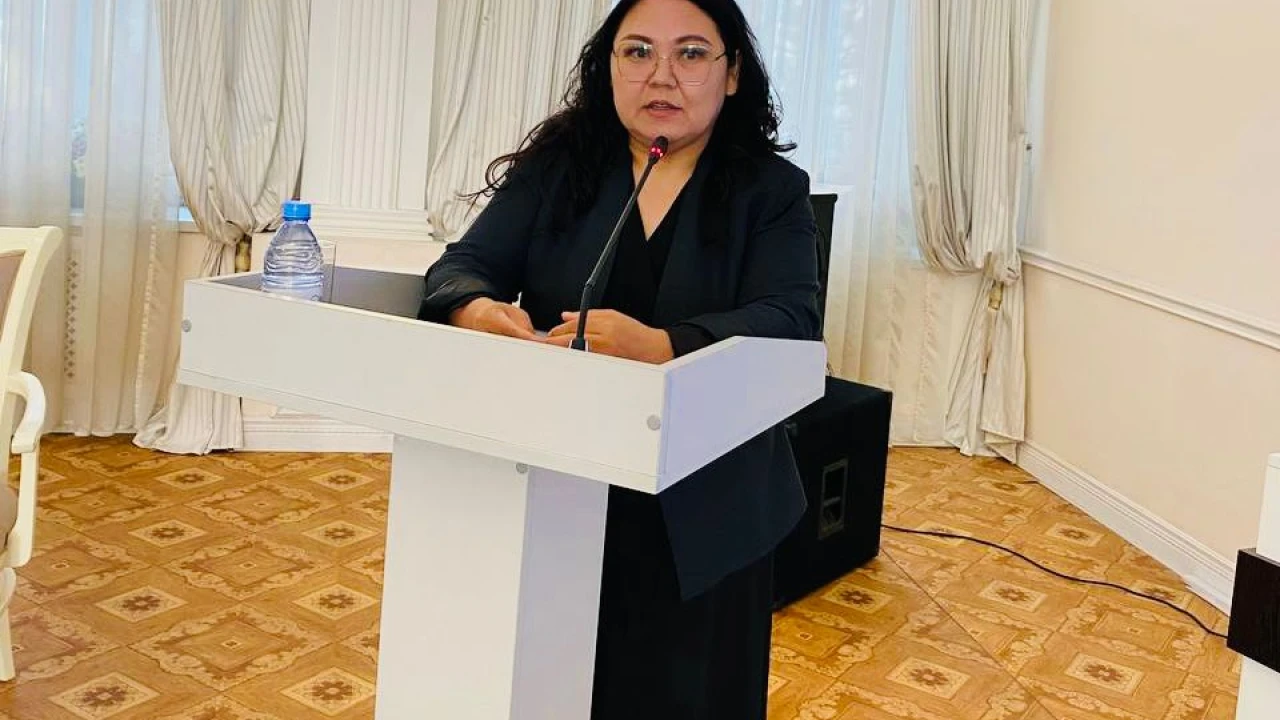
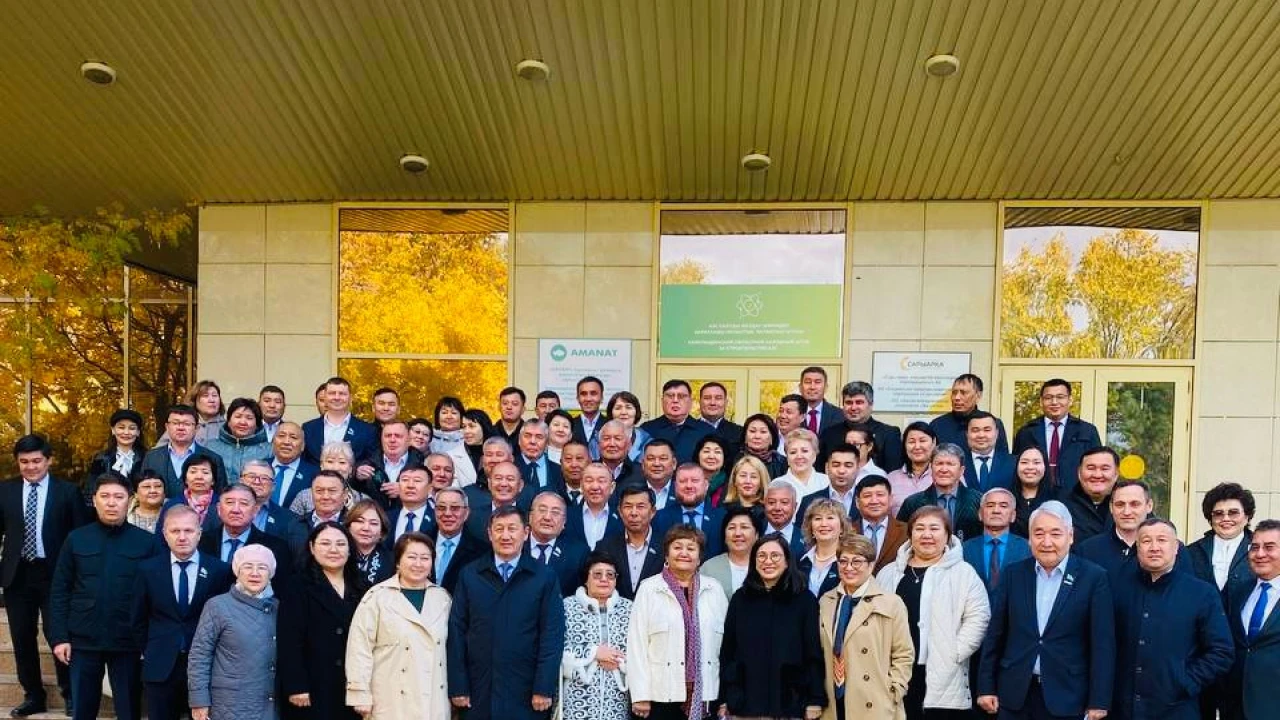
A training for deputies of maslikhats from five regions of the country was held in Karaganda region, organized by the Institute of Parliamentarism under the Office of the President of the Republic of Kazakhstan in cooperation with the Foundation for the Development of Parliamentarism and the Association of Deputies of Maslikhatovkazakhstan with the support of the OSCE Program Office. This training is part of the program of interaction of the Senate of the Parliament of the Republic of Kazakhstan with maslikhats, approved in 2024.
The event was attended by deputies from Akmola, Karaganda, Kostanay, North Kazakhstan and Atyrau regions. The main task of the training was to improve the professional skills of people's deputies and provide methodological assistance in lawmaking and law enforcement.
Deputy Director of the Institute of Parliamentarism Lyazzat Suleimen, speaking to the participants, stressed the importance of systematic work on improving legislative norms aimed at improving the quality of life of citizens. In her address, she highlighted the key provisions of the recent Presidential Address, focusing on the importance of strengthening public control, combating human trafficking and ensuring the safety of children. Important aspects of the work are tougher penalties for crimes against minors and the introduction of standards aimed at protecting children in educational institutions and playgrounds. They also touched upon issues of regulating social policy, in particular measures to reduce the debt burden of the population, which, according to Suleiman, are becoming increasingly relevant against the background of increased financial risks.
The participants of the event were also addressed by Chairman of the Karaganda regional Maslikhat Nurken Kobzhanov, President of the Parliamentary Development Fund Zauresh Batalova, representative of the OSCE Program Office Assel Karatayeva and Senator Serik Oteshov. They noted the importance of such trainings to strengthen the institution of maslikhats and increase their influence on local self-government.
In her report, Zauresh Batalova considered in detail the regulatory and legal support for the activities of maslikhats, and expert of the Institute of Parliamentarism Meruert Kabylbayeva noted the importance of interaction between deputies and Parliament and the role of maslikhats in solving pressing issues of citizens.
"Citizens first of all turn to the deputies of maslikhats, and it is through you that the primary contact with the authorities takes place. Working together with the Senate allows for better control over the implementation of laws and timely response to emerging problems," Kabylbayeva said. She also highlighted the importance of creating a unified ecosystem for processing citizens' appeals, including analyzing their opinions expressed through social networks, which allows for more accurate identification of the needs of the population.
In his speech, Zhanibek Sattybayev, an expert at the Institute of Parliamentarism, highlighted the main problems associated with land management at the level of administrative territories. In particular, he pointed out the shortage of pasture lands in rural settlements, the difficulties that arise when imposing rights on the same land plot, as well as the need for strict control over the use of land near water bodies. Special attention was paid to the issues of redistribution of unused agricultural land and strengthening the interaction of deputies of maslikhats with executive bodies to effectively solve these problems.
The topic of anti-corruption policy in the activities of maslikhats was highlighted by expert Almagul Khasenova. She stressed the importance of monitoring local budgets and programs, presenting Transparency International data, according to which Kazakhstan improved its position in the corruption perception index, ranking 97th among 180 countries. However, the current score of 39 out of 100 points indicates the need for further efforts to reduce corruption.
The expert of the Center for the Judicial System and Law Enforcement Agencies, Shyrynbek Ongarov, in turn, drew attention to the need for active crime prevention and interaction with law enforcement agencies to ensure public order. He noted that strengthening public safety measures and improving socio-economic conditions in the regions contribute to improving the level of law and order and reducing crime.
At the end of the event, the participants of the training came to a consensus on the need for regular holding of such training events. They noted that systematic work to improve the qualifications of deputies and their active interaction with executive authorities will contribute to solving urgent problems and improving the quality of life of citizens of the Republic of Kazakhstan.



